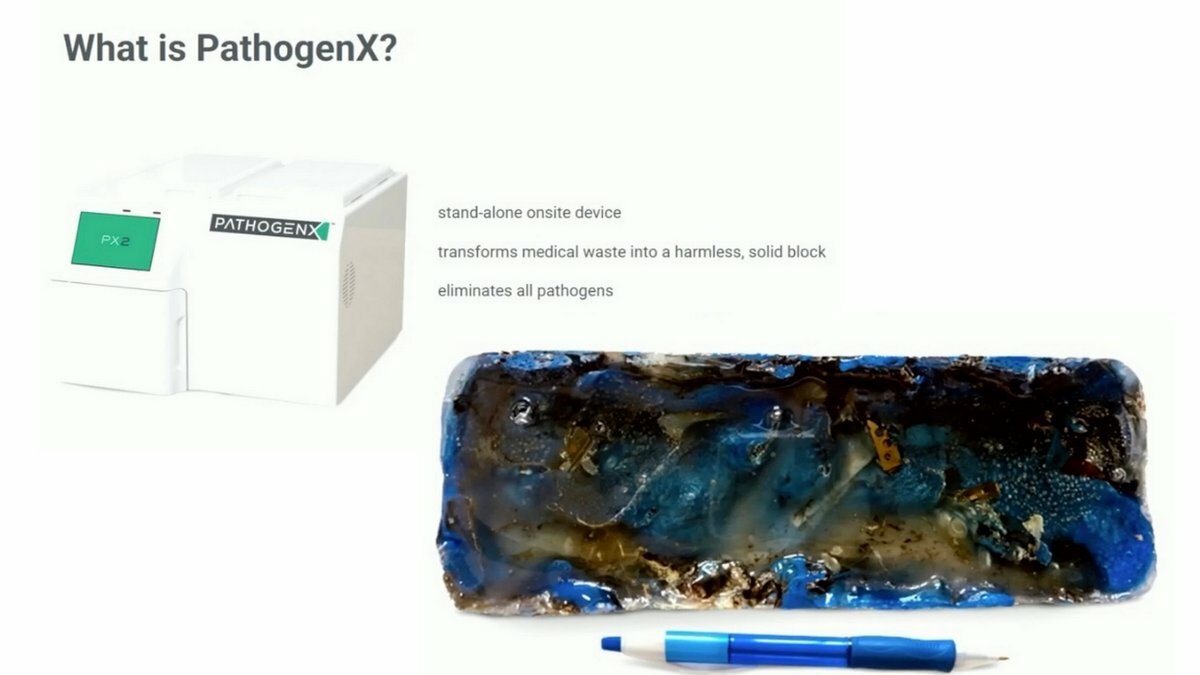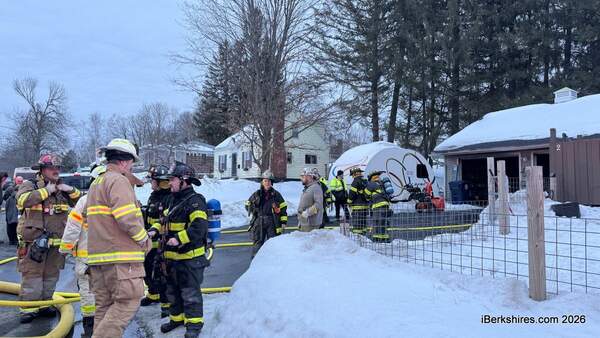
Pittsfield Panel Recommends GE Funds for PathogenX
PITTSFIELD, Mass. — A medical waste company is seeking GE economic development funds to move its operations to the city and expand.
Last week, the Community and Economic Development subcommittee supported a $150,000 allocation of the funds to support PathogenX, a company that Business Development Manager Michael Coakley described as "interesting, innovative, and green."
The City Council will take a final vote on Tuesday evening.
The PathogenX is a stand-alone onsite device that uses thermal heat to turn medical waste into safer waste by killing pathogens, bacteria and viruses.
"One of the really interesting things about PathogenX is currently all the manufacturing is done in China and in Canada, and (co-founder and CEO Chuck Berkeley) wants to bring all the manufacturing back here to Pittsfield. So that's super news for us," Coakley said.
"We have proposed $150,000 from the Pittsfield Economic Development Fund to help Chuck move the company back here, hire three people immediately and then another five over the next year or two, and then to help bring the manufacturing back here to Pittsfield."
Councilor at Large Earl Persip III said companies like this are why the city was all for the Berkshire Innovation Center, which is where it will be located.
"I will support this project," he said. "And it just ties to the BIC for me. This is why we fought so hard for the BIC to take place."
Berkeley, who is a native of Pittsfield, and Courtney Scott founded PathogenX in 2017.
"What is PathogenX? It's a company designed to take care of a problem that happening in medical facilities all across the country. Medical waste is a huge issue for these facilities," he explained.
"Processing it handling, it storing it, paying for it is a big issue so we developed a technology that addresses that problem."
About 600,000 to 800,000 needle pricks happen per year, mostly on nurses who handle medical waste on an ongoing basis.
The technology aims to eliminate the risk of handling, storing, and transporting it as well as the cost associated. PathogenX is one of two companies in the world that use this modality.
Berkeley said the most important issue his company addresses is the cradle-to-grave liability, or the requirement enforced by the U.S. Environmental Protection Agency that hazardous waste generators are responsible for the waste from the point of generation (cradle) to the point of final disposal (grave.)
Individual violations of transportation and storage policies can result in a $50,000 fine and multiple violations can result in fines from $250,000 to $1 million.
The PathogenX is said to eliminate those factors by converting the waste into regular trash.
"I actually designed the technology with my wife and we worked on medical devices for a long time," Berkeley explained. "Spent about 13 years in the operating room with surgeons kind of running the operating room so I know a lot about this equipment and what they think when they use it, how they like to use equipment so we made it super easy to use."
Berkeley said by locating the facility in Pittsfield, it is believed that the manufacturing prices can go down.
"We're working with the accelerator program at the BIC to hopefully bring some more manufacturing dollars into the company to make that [generation] two machine better and greener for the environment," Berkeley reported.
Ward 2 Councilor Charles Kronick, who spoke during public comment, said it is an interesting idea with potential but found issues with the transfer of liability for disposal and raised questions about the company itself.
Due to the back-and-forth nature of his inquiries, he was asked to keep his correspondence to public comment by Persip, the chair of the subcommittee.
"This technology is regulated by the [U.S. Food and Drug Administration,]" Berkeley said. "It's considered an alternative medical waste treatment technology. It's written into their approval process so in order for me to get approval to sell in a certain state, I have to go through a pretty stringent process."
He was also asked "Why Pittsfield?" and described himself as a "hardcore Pittsfield guy" who is proud of where he came from.
If approved, the company would like to start moving forward immediately with the goal of establishing a manufacturing facility and developing generation two technology by the end of 2024.
"I have aspirations of doing more than just bringing a business here," he said.
"I want to do something for the kids. I know when I came up, I didn't have everything that a lot of other kids had so if I could bring something to the community in that way as well as make PathogenX a household name, that would be really cool. It'll be a big accomplishment."
Tags: BIC, hazardous waste, manufacturing,


















